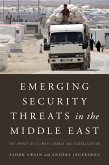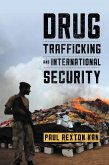Sean Kay
Global Security in the Twenty-First Century (eBook, PDF)
The Quest for Power and the Search for Peace
46,95 €
46,95 €
inkl. MwSt.
Sofort per Download lieferbar

23 °P sammeln
46,95 €
Als Download kaufen

46,95 €
inkl. MwSt.
Sofort per Download lieferbar

23 °P sammeln
Jetzt verschenken
Alle Infos zum eBook verschenken
46,95 €
inkl. MwSt.
Sofort per Download lieferbar
Alle Infos zum eBook verschenken

23 °P sammeln
Sean Kay
Global Security in the Twenty-First Century (eBook, PDF)
The Quest for Power and the Search for Peace
- Format: PDF
- Merkliste
- Auf die Merkliste
- Bewerten Bewerten
- Teilen
- Produkt teilen
- Produkterinnerung
- Produkterinnerung

Bitte loggen Sie sich zunächst in Ihr Kundenkonto ein oder registrieren Sie sich bei
bücher.de, um das eBook-Abo tolino select nutzen zu können.
Hier können Sie sich einloggen
Hier können Sie sich einloggen
Sie sind bereits eingeloggt. Klicken Sie auf 2. tolino select Abo, um fortzufahren.

Bitte loggen Sie sich zunächst in Ihr Kundenkonto ein oder registrieren Sie sich bei bücher.de, um das eBook-Abo tolino select nutzen zu können.
This thoroughly updated edition of Global Security in the Twenty-First Century offers a balanced introduction to contemporary security dilemmas throughout the world. Sean Kay assesses the impact of the global economic crisis on international security and considers how the range of thinking about power and peace has evolved in relation to major flashpoints including in the Middle East, Asia, and Eurasia. Kay builds on the first and second edition's emphasis on the roles of trade and technology, the militarization of space, the privatization of security, the use of sanctions, ethnic conflict,…mehr
- Geräte: PC
- mit Kopierschutz
- eBook Hilfe
- Größe: 5.58MB
Andere Kunden interessierten sich auch für
![International Migration and Challenges in the Beginning of the Twenty-First Century (eBook, PDF) International Migration and Challenges in the Beginning of the Twenty-First Century (eBook, PDF)]() International Migration and Challenges in the Beginning of the Twenty-First Century (eBook, PDF)73,95 €
International Migration and Challenges in the Beginning of the Twenty-First Century (eBook, PDF)73,95 €![Emerging Security Threats in the Middle East (eBook, PDF) Emerging Security Threats in the Middle East (eBook, PDF)]() Ashok SwainEmerging Security Threats in the Middle East (eBook, PDF)31,95 €
Ashok SwainEmerging Security Threats in the Middle East (eBook, PDF)31,95 €![The Uprooted (eBook, PDF) The Uprooted (eBook, PDF)]() Susan F. MartinThe Uprooted (eBook, PDF)34,95 €
Susan F. MartinThe Uprooted (eBook, PDF)34,95 €![Drug Trafficking and International Security (eBook, PDF) Drug Trafficking and International Security (eBook, PDF)]() Paul Rexton KanDrug Trafficking and International Security (eBook, PDF)28,95 €
Paul Rexton KanDrug Trafficking and International Security (eBook, PDF)28,95 €![Waves of Social Movement Mobilizations in the Twenty-First Century (eBook, PDF) Waves of Social Movement Mobilizations in the Twenty-First Century (eBook, PDF)]() Waves of Social Movement Mobilizations in the Twenty-First Century (eBook, PDF)36,95 €
Waves of Social Movement Mobilizations in the Twenty-First Century (eBook, PDF)36,95 €![Gender, Global Health, and Violence (eBook, PDF) Gender, Global Health, and Violence (eBook, PDF)]() Gender, Global Health, and Violence (eBook, PDF)31,95 €
Gender, Global Health, and Violence (eBook, PDF)31,95 €![The Puzzle of Twenty-First-Century Globalization (eBook, PDF) The Puzzle of Twenty-First-Century Globalization (eBook, PDF)]() Patrice FrankoThe Puzzle of Twenty-First-Century Globalization (eBook, PDF)36,95 €
Patrice FrankoThe Puzzle of Twenty-First-Century Globalization (eBook, PDF)36,95 €-
-
-
This thoroughly updated edition of Global Security in the Twenty-First Century offers a balanced introduction to contemporary security dilemmas throughout the world. Sean Kay assesses the impact of the global economic crisis on international security and considers how the range of thinking about power and peace has evolved in relation to major flashpoints including in the Middle East, Asia, and Eurasia. Kay builds on the first and second edition's emphasis on the roles of trade and technology, the militarization of space, the privatization of security, the use of sanctions, ethnic conflict, and transnational crime. This edition goes even farther to incorporate traditional thinking about national security in the context of human rights, democracy, population, health, environment, energy, and especially education. The author includes full updates on emerging challenges out of Iraq, Russia, and viral diseases in the context of larger strategic questions like the rise of China and America's "pivot" to rebalance its priorities toward Asia. Writing in an engaging style, Kay integrates traditional and emerging challenges in one easily accessible study that gives readers the tools they need to develop a thoughtful and nuanced understanding of global security.
Produktdetails
- Produktdetails
- Verlag: Bloomsbury eBooks US
- Seitenzahl: 426
- Erscheinungstermin: 6. März 2015
- Englisch
- ISBN-13: 9798765173695
- Artikelnr.: 74845183
- Verlag: Bloomsbury eBooks US
- Seitenzahl: 426
- Erscheinungstermin: 6. März 2015
- Englisch
- ISBN-13: 9798765173695
- Artikelnr.: 74845183
- Herstellerkennzeichnung Die Herstellerinformationen sind derzeit nicht verfügbar.
Sean Kay is Robson Professor of Politics and Government at Ohio Wesleyan University.
Contents
Preface
1. Dynamics of Global Security
Globalization of Security
The New Distribution of Power
The Nation-State
Soft Power
Asymmetric Power
The Power of Nature
Overview of the Book
Suggested Reading
2. The Quest for Power
The Traditions of Realism
The Security Dilemma and Incentives for War
Misperception, Coercion, and Credibility
Offensive Realism
The Realist Path to Security
Deterrence
Alliances and Concerts
Hegemonic Stability and Offshore Balancing
Realism Revised
Global Security
Primacy and the New Balancing
Alliances, Dissuasion, and Strategic Partnerships
Asymmetric Threats, Ethnic Conflict, and Identity Realism
Clash of Civilizations
Economic Realism
Realists as Optimists
Summary
Suggested Reading
3. The Search for Peace
Liberalism
Neoliberal Institutionalism
Cooperative Security
Peace through Commerce
Democratic Peace and Security Communities
Emerging Security Paradigms
Constructivism
Transnational Civil Society
Pacifism and Peace Movements
Postmodernism
Feminism and Gender
Revolutionary Approaches
Summary
Suggested Reading
4. Great Powers and Grand Strategy
The United States
Russia
China
The European Union
Summary
Suggested Reading
5. Regional Flash Points
India and Pakistan
The Balance of Power and Nuclear Weapons
Limited Deterrence
Nuclear Dangers
The Korean Peninsula
The North Korean Threat
The Nuclear Environment
Averting Conflict-or a Nuclear Chain Reaction?
Taiwan
One China or Two?
Unconventional War and Strategic Consequences
Taiwan's Security Dilemma
Interdependence and the Case against War
The Persian Gulf and the Middle East
American Primacy and the Iraq Conundrum
Iran, Israel, and the Geopolitical Balance
The Saudi Question
An Uncertain Future
Eurasia
Russian Hegemony and Balancing
Great Power Alignments
Beyond the Status Quo
Summary
Suggested Reading
6. Technology and the Business of Security
Revolution in Military Affairs
The Limits of Technology in War
From Science Fiction to Modern War
The Dilemma of Advanced Technology
Information and Security
Information Power
Knowledge and Power
The Military Use of Space
Spacepower
Space Dominance
The Space Race
Strategic Dilemmas in Space: Missile Defense and Antisatellite Weapons
The Business of Security
The A. Q. Khan Nuclear Shopping Center
Security Privatization
Private Security Companies
Outsourcing War
The New Agenda Setters
Sanctioning Security
The Sanctions Dilemma
Are Sanctions Better Than Nothing?
Summary
Suggested Reading
7. Asymmetric Conflict
Strategy and Tactics of Asymmetric Conflict
Genocide and Ethnic Cleansing
The Balkans
Rwanda
Never Again?
Terrorism and Insurgency
The Meaning and Use of Terror
The Evolution of Modern Terrorism
Al Qaeda
The Globalization of Terror
Terrorism and Weapons of Mass Destruction
Defensive Dilemmas
Summary
Suggested Reading
8. Human Security
What is Human Security?
Human Rights and Democracy
Contemporary Challenges to Human Rights
Degrees of Democracy
Population and Demographic Change
Population Trends and Demographic Developments
Migration and Refugees
Food and Health
The Human Costs of War
The Impact of War on Individuals
The Social Effects of War
The Impact of War on the Environment
Summary
Suggested Reading
9. The Environment and Energy Security
What is Environmental Security?
The Environment as a Source of Conflict
An Evolving Environmental Security Paradigm
Beyond Environmental Security
Conceptualizing Energy Security
Security Energy Resources and Flows
Economic Development and Energy Security
Environmental Dangers
Climate Change
Deforestation and Land Use
Water Security
Energy Scarcity and Safety
Nuclear Energy
Summary
Suggested Reading
10. Meeting the Challenges of Power and Peace
Applying Global Security Concepts
The Quest for Power
The Search for Peace
From Theory to Practice: Education and Global Security
Education and Global Security
Education and National Power
Education in Peace and Conflict
What Can You Do?
Conclusion
Suggested Reading
Preface
1. Dynamics of Global Security
Globalization of Security
The New Distribution of Power
The Nation-State
Soft Power
Asymmetric Power
The Power of Nature
Overview of the Book
Suggested Reading
2. The Quest for Power
The Traditions of Realism
The Security Dilemma and Incentives for War
Misperception, Coercion, and Credibility
Offensive Realism
The Realist Path to Security
Deterrence
Alliances and Concerts
Hegemonic Stability and Offshore Balancing
Realism Revised
Global Security
Primacy and the New Balancing
Alliances, Dissuasion, and Strategic Partnerships
Asymmetric Threats, Ethnic Conflict, and Identity Realism
Clash of Civilizations
Economic Realism
Realists as Optimists
Summary
Suggested Reading
3. The Search for Peace
Liberalism
Neoliberal Institutionalism
Cooperative Security
Peace through Commerce
Democratic Peace and Security Communities
Emerging Security Paradigms
Constructivism
Transnational Civil Society
Pacifism and Peace Movements
Postmodernism
Feminism and Gender
Revolutionary Approaches
Summary
Suggested Reading
4. Great Powers and Grand Strategy
The United States
Russia
China
The European Union
Summary
Suggested Reading
5. Regional Flash Points
India and Pakistan
The Balance of Power and Nuclear Weapons
Limited Deterrence
Nuclear Dangers
The Korean Peninsula
The North Korean Threat
The Nuclear Environment
Averting Conflict-or a Nuclear Chain Reaction?
Taiwan
One China or Two?
Unconventional War and Strategic Consequences
Taiwan's Security Dilemma
Interdependence and the Case against War
The Persian Gulf and the Middle East
American Primacy and the Iraq Conundrum
Iran, Israel, and the Geopolitical Balance
The Saudi Question
An Uncertain Future
Eurasia
Russian Hegemony and Balancing
Great Power Alignments
Beyond the Status Quo
Summary
Suggested Reading
6. Technology and the Business of Security
Revolution in Military Affairs
The Limits of Technology in War
From Science Fiction to Modern War
The Dilemma of Advanced Technology
Information and Security
Information Power
Knowledge and Power
The Military Use of Space
Spacepower
Space Dominance
The Space Race
Strategic Dilemmas in Space: Missile Defense and Antisatellite Weapons
The Business of Security
The A. Q. Khan Nuclear Shopping Center
Security Privatization
Private Security Companies
Outsourcing War
The New Agenda Setters
Sanctioning Security
The Sanctions Dilemma
Are Sanctions Better Than Nothing?
Summary
Suggested Reading
7. Asymmetric Conflict
Strategy and Tactics of Asymmetric Conflict
Genocide and Ethnic Cleansing
The Balkans
Rwanda
Never Again?
Terrorism and Insurgency
The Meaning and Use of Terror
The Evolution of Modern Terrorism
Al Qaeda
The Globalization of Terror
Terrorism and Weapons of Mass Destruction
Defensive Dilemmas
Summary
Suggested Reading
8. Human Security
What is Human Security?
Human Rights and Democracy
Contemporary Challenges to Human Rights
Degrees of Democracy
Population and Demographic Change
Population Trends and Demographic Developments
Migration and Refugees
Food and Health
The Human Costs of War
The Impact of War on Individuals
The Social Effects of War
The Impact of War on the Environment
Summary
Suggested Reading
9. The Environment and Energy Security
What is Environmental Security?
The Environment as a Source of Conflict
An Evolving Environmental Security Paradigm
Beyond Environmental Security
Conceptualizing Energy Security
Security Energy Resources and Flows
Economic Development and Energy Security
Environmental Dangers
Climate Change
Deforestation and Land Use
Water Security
Energy Scarcity and Safety
Nuclear Energy
Summary
Suggested Reading
10. Meeting the Challenges of Power and Peace
Applying Global Security Concepts
The Quest for Power
The Search for Peace
From Theory to Practice: Education and Global Security
Education and Global Security
Education and National Power
Education in Peace and Conflict
What Can You Do?
Conclusion
Suggested Reading
Contents
Preface
1. Dynamics of Global Security
Globalization of Security
The New Distribution of Power
The Nation-State
Soft Power
Asymmetric Power
The Power of Nature
Overview of the Book
Suggested Reading
2. The Quest for Power
The Traditions of Realism
The Security Dilemma and Incentives for War
Misperception, Coercion, and Credibility
Offensive Realism
The Realist Path to Security
Deterrence
Alliances and Concerts
Hegemonic Stability and Offshore Balancing
Realism Revised
Global Security
Primacy and the New Balancing
Alliances, Dissuasion, and Strategic Partnerships
Asymmetric Threats, Ethnic Conflict, and Identity Realism
Clash of Civilizations
Economic Realism
Realists as Optimists
Summary
Suggested Reading
3. The Search for Peace
Liberalism
Neoliberal Institutionalism
Cooperative Security
Peace through Commerce
Democratic Peace and Security Communities
Emerging Security Paradigms
Constructivism
Transnational Civil Society
Pacifism and Peace Movements
Postmodernism
Feminism and Gender
Revolutionary Approaches
Summary
Suggested Reading
4. Great Powers and Grand Strategy
The United States
Russia
China
The European Union
Summary
Suggested Reading
5. Regional Flash Points
India and Pakistan
The Balance of Power and Nuclear Weapons
Limited Deterrence
Nuclear Dangers
The Korean Peninsula
The North Korean Threat
The Nuclear Environment
Averting Conflict-or a Nuclear Chain Reaction?
Taiwan
One China or Two?
Unconventional War and Strategic Consequences
Taiwan's Security Dilemma
Interdependence and the Case against War
The Persian Gulf and the Middle East
American Primacy and the Iraq Conundrum
Iran, Israel, and the Geopolitical Balance
The Saudi Question
An Uncertain Future
Eurasia
Russian Hegemony and Balancing
Great Power Alignments
Beyond the Status Quo
Summary
Suggested Reading
6. Technology and the Business of Security
Revolution in Military Affairs
The Limits of Technology in War
From Science Fiction to Modern War
The Dilemma of Advanced Technology
Information and Security
Information Power
Knowledge and Power
The Military Use of Space
Spacepower
Space Dominance
The Space Race
Strategic Dilemmas in Space: Missile Defense and Antisatellite Weapons
The Business of Security
The A. Q. Khan Nuclear Shopping Center
Security Privatization
Private Security Companies
Outsourcing War
The New Agenda Setters
Sanctioning Security
The Sanctions Dilemma
Are Sanctions Better Than Nothing?
Summary
Suggested Reading
7. Asymmetric Conflict
Strategy and Tactics of Asymmetric Conflict
Genocide and Ethnic Cleansing
The Balkans
Rwanda
Never Again?
Terrorism and Insurgency
The Meaning and Use of Terror
The Evolution of Modern Terrorism
Al Qaeda
The Globalization of Terror
Terrorism and Weapons of Mass Destruction
Defensive Dilemmas
Summary
Suggested Reading
8. Human Security
What is Human Security?
Human Rights and Democracy
Contemporary Challenges to Human Rights
Degrees of Democracy
Population and Demographic Change
Population Trends and Demographic Developments
Migration and Refugees
Food and Health
The Human Costs of War
The Impact of War on Individuals
The Social Effects of War
The Impact of War on the Environment
Summary
Suggested Reading
9. The Environment and Energy Security
What is Environmental Security?
The Environment as a Source of Conflict
An Evolving Environmental Security Paradigm
Beyond Environmental Security
Conceptualizing Energy Security
Security Energy Resources and Flows
Economic Development and Energy Security
Environmental Dangers
Climate Change
Deforestation and Land Use
Water Security
Energy Scarcity and Safety
Nuclear Energy
Summary
Suggested Reading
10. Meeting the Challenges of Power and Peace
Applying Global Security Concepts
The Quest for Power
The Search for Peace
From Theory to Practice: Education and Global Security
Education and Global Security
Education and National Power
Education in Peace and Conflict
What Can You Do?
Conclusion
Suggested Reading
Preface
1. Dynamics of Global Security
Globalization of Security
The New Distribution of Power
The Nation-State
Soft Power
Asymmetric Power
The Power of Nature
Overview of the Book
Suggested Reading
2. The Quest for Power
The Traditions of Realism
The Security Dilemma and Incentives for War
Misperception, Coercion, and Credibility
Offensive Realism
The Realist Path to Security
Deterrence
Alliances and Concerts
Hegemonic Stability and Offshore Balancing
Realism Revised
Global Security
Primacy and the New Balancing
Alliances, Dissuasion, and Strategic Partnerships
Asymmetric Threats, Ethnic Conflict, and Identity Realism
Clash of Civilizations
Economic Realism
Realists as Optimists
Summary
Suggested Reading
3. The Search for Peace
Liberalism
Neoliberal Institutionalism
Cooperative Security
Peace through Commerce
Democratic Peace and Security Communities
Emerging Security Paradigms
Constructivism
Transnational Civil Society
Pacifism and Peace Movements
Postmodernism
Feminism and Gender
Revolutionary Approaches
Summary
Suggested Reading
4. Great Powers and Grand Strategy
The United States
Russia
China
The European Union
Summary
Suggested Reading
5. Regional Flash Points
India and Pakistan
The Balance of Power and Nuclear Weapons
Limited Deterrence
Nuclear Dangers
The Korean Peninsula
The North Korean Threat
The Nuclear Environment
Averting Conflict-or a Nuclear Chain Reaction?
Taiwan
One China or Two?
Unconventional War and Strategic Consequences
Taiwan's Security Dilemma
Interdependence and the Case against War
The Persian Gulf and the Middle East
American Primacy and the Iraq Conundrum
Iran, Israel, and the Geopolitical Balance
The Saudi Question
An Uncertain Future
Eurasia
Russian Hegemony and Balancing
Great Power Alignments
Beyond the Status Quo
Summary
Suggested Reading
6. Technology and the Business of Security
Revolution in Military Affairs
The Limits of Technology in War
From Science Fiction to Modern War
The Dilemma of Advanced Technology
Information and Security
Information Power
Knowledge and Power
The Military Use of Space
Spacepower
Space Dominance
The Space Race
Strategic Dilemmas in Space: Missile Defense and Antisatellite Weapons
The Business of Security
The A. Q. Khan Nuclear Shopping Center
Security Privatization
Private Security Companies
Outsourcing War
The New Agenda Setters
Sanctioning Security
The Sanctions Dilemma
Are Sanctions Better Than Nothing?
Summary
Suggested Reading
7. Asymmetric Conflict
Strategy and Tactics of Asymmetric Conflict
Genocide and Ethnic Cleansing
The Balkans
Rwanda
Never Again?
Terrorism and Insurgency
The Meaning and Use of Terror
The Evolution of Modern Terrorism
Al Qaeda
The Globalization of Terror
Terrorism and Weapons of Mass Destruction
Defensive Dilemmas
Summary
Suggested Reading
8. Human Security
What is Human Security?
Human Rights and Democracy
Contemporary Challenges to Human Rights
Degrees of Democracy
Population and Demographic Change
Population Trends and Demographic Developments
Migration and Refugees
Food and Health
The Human Costs of War
The Impact of War on Individuals
The Social Effects of War
The Impact of War on the Environment
Summary
Suggested Reading
9. The Environment and Energy Security
What is Environmental Security?
The Environment as a Source of Conflict
An Evolving Environmental Security Paradigm
Beyond Environmental Security
Conceptualizing Energy Security
Security Energy Resources and Flows
Economic Development and Energy Security
Environmental Dangers
Climate Change
Deforestation and Land Use
Water Security
Energy Scarcity and Safety
Nuclear Energy
Summary
Suggested Reading
10. Meeting the Challenges of Power and Peace
Applying Global Security Concepts
The Quest for Power
The Search for Peace
From Theory to Practice: Education and Global Security
Education and Global Security
Education and National Power
Education in Peace and Conflict
What Can You Do?
Conclusion
Suggested Reading







